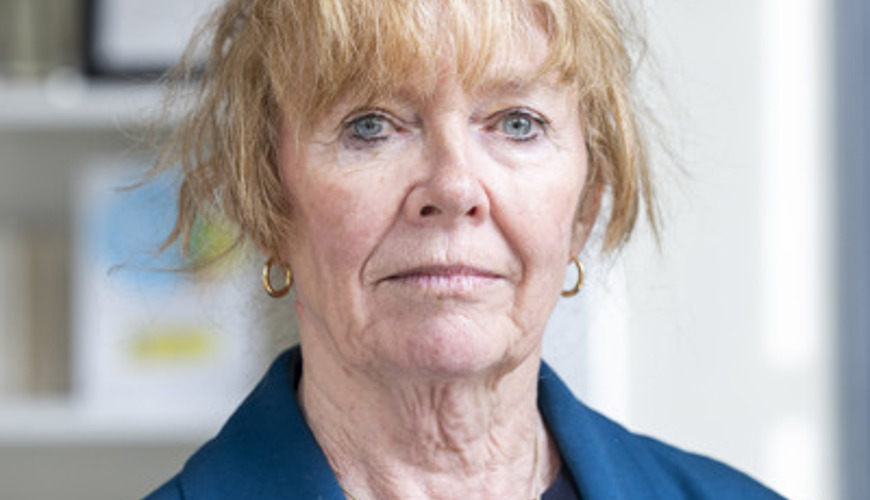Watch: Law Society of Scotland President Patricia Thom talks jet plane courts and legal aid reform
The Journal sat down with new Law Society of Scotland President Patricia Thom for the first time to discuss legal aid, Arctic courts, and why high street firms matter.
I meet Thom at the Society’s newly refurbished offices, just days after staff have formally moved back. It’s a case of in with the new: new setting, new president and, with the Regulation of Legal Services (Scotland) Bill finally passed, a new regulatory landscape.
Thom, a Scottish Borders’ solicitor who first qualified in her native Canada, joined the Law Society of Scotland Council in a decade ago.
In 2020, she became Convener of the Society’s Civil Legal Aid Committee and in 2023 took on the same role with the Child and Family Law Committee
Thom, the eighth woman to become President, will be backed by incoming Vice President Serena Sutherland, the first solicitor based in Scotland’s Northern Isles to become an Office Bearer and Orkney’s only legal aid solicitor.
In a lengthy sit down with the Journal, Thom talks through her career journey and what her priorities are for her tenure. Here’s a snapshot of her key points:
Canadian years and Arctic courts
I originally got my law degree in Saskatchewan and went up to a place called Yellowknife, which is in the Northwest Territories. I actually grew up there, there’re two gold mines up there and my dad was a mining engineer.
Even though when I graduated from law school I was thinking of going to Ontario, and in fact was offered jobs in Ontario, for some reason I decided to go back to Yellowknife. Now that was sort of fortunate because the person who became my husband had just qualified as a dentist from the University of Glasgow and decided that he wanted an adventure and he wound up coming to Yellowknife.
I worked there for five years in a high street practice. I did conveyancing, I did criminal law. There were these little communities that the court would travel to, we call them court circuits, and we would travel in a jet plane and it would be the judge, the court reporter, the prosecutor, me as a defence lawyer, the Mounty.
We would arrive in these poor communities and you would wonder how these people would understand our different roles. But they would all show up in the little community hall and the judge would call them all in and he would say ‘if you’re going to plead guilty, speak to the prosecutor over there, if you want to plead not guilty, go speak to that young lady over there. She’s going to defend you.’
Then we would all finish court and we’d all go to one hotel and all have dinner together. I saw polar bears up there, it was a very different kind of practice, but perhaps an adventure that some of our members will go on to one day.
Working in different settings and specialisms in Scotland
It was pretty diverse. I mean, funnily enough, when I was working for [Scottish Borders Council], I became the copyright expert. And I was also working in all of their computer contracts which was completely different to the kind of work I was doing, mainly for the local authority, which was in education and social work, the emotional type of thing.
Legal aid matters
Sometimes I can feel a little bit disheartened. I started being a legal aid lawyer in 2003 and I joined the Law Society in 2015. So having had 12 years of practicing in legal aid then I became the Convener of the Civil Legal Aid Committee and, if we remember the dates, that was just before Covid which was a real shock to the system because the courts closed.
Legal aid solicitors weren’t able to make any money because they couldn’t, most of their income was generated by doing court work. That’s when I became really involved with the Law Society, I began working closely with the Society to meeting with the Scottish Government and the Scottish Legal Aid Board in an effort to try and improve the situation for legal aid solicitors, both criminal and civil.
We got a 10 per cent increase in fees, we got a resilience fund. We were moving forward and we started making a bit more progress once Covid was finished and the lockdown stopped.
This Legal Aid Matters campaign, I think that really prompted the Scottish Government into rethinking, maybe this is an issue and we need to be doing something about it. I think we changed the dialogue as well.
What is next for legal aid
We met with the Minister, the Scottish Government got in touch with us to say that they wanted to make a proposal. We met with them, and they sent us a proposal. We responded that it wasn’t acceptable.
The minister seems very sympathetic, which is certainly an improvement on what has been happening in the in the past, but frustratingly she just doesn’t have any money to offer. We’re at a standstill which is extremely frustrating and disheartening.
Why urgent change is needed
The example I always give Is an example that could affect any of us. Let’s say you are walking down the street with your partner and suddenly something hits them on the head and as a result he gets a head injury and loses capacity. Well, you’re going to have to apply for guardianship to be able to make decisions for him.
The regulations say that you can only apply to the court for guardianship under the legal aid scheme. The good thing about applying for legal aid for, say, the Adults with Incapacity Act 2020 is that there’s no means testing. But if there was no one doing legal aid, you’d be really screwed. I always like that example because it shows that it could affect anybody.
I think most people care about the vulnerable in our society and that is the other crucial bit. The victims of domestic abuse, people who are being evicted from their houses, children. They would all be inordinately affected if there wasn’t a legal aid system to assist them.
Life in smaller firms
Smaller firms are the backbone of Scotland, in a sense. Most communities have a local legal firm and I feel that a lot of people if they want to do their wills or buy a house like to go to the local legal firm to do that work. I would like to encourage young people to think about going to work for a small firm outside the cities.
You get to be part of the community, your work-life balance is probably better because there’s less commuting, and it’s quite a satisfying experience.
Diversity across the profession
It’s really exciting when you go to these admission ceremonies and you see the diversity, both in so many women being admitted but so many different cultures as well. And that’s really exciting, but it doesn’t seem to be working through.
Maybe it’s just going to take time. I think young solicitors do seem to have a different focus these days. The work-life balance is far more important these days. Maybe new solicitors don’t really want to become partners and I think law firms need to appreciate that.







